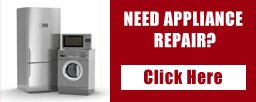Does lowering your thermostat actually save you money? And if so, what is the optimum temperature to reap the most benefits? Here are the recommendations from the DOE on thermostat settings to save energy and money on your monthly utility costs.
It is tempting on hot days to crank up the AC to cool the house off. While this feels great to those suffering in the heat, it causes your air conditioner to use energy at a higher rate which means that you will see larger energy bills.
Energy-Efficient Settings for Winter
According to recommendations from the U.S Department of Energy, the optimum setting for thermostats in the winter is 68 degrees F. If you have a programmable thermostat, you can set the temperature a little higher when you’re home and reduce it back to 68 degrees when you leave or go to bed for the night. You will get the most savings when temperatures remain low for a period of 8 to 10 hours. If your home is properly weatherized you shouldn’t notice too much difference, or you can always put on a sweater if you feel cold.
Energy-Efficient Settings for Summer
Energy-efficient settings during the summer are 78 degrees when the home is occupied and then raise it when you leave for work or go to bed. Raising the temperature on the thermostat saves money because when the temperature inside is warmer, it slows the amount of heat flow that enters the home. The home can only absorb so much heat, and it is less when indoor temperatures are closer to the outside temperature. What this means is if the temperature outside is 92 degrees, setting your thermostat to 85 for a minimum of 8 hours will cause the AC to cycle less and save you more money.
Does it Save Money to Turn it Off?
In early spring when temperatures are milder, you could opt to skip the AC and use your ceiling fans if it’s not too hot. On days that are in the range of 72 to 85, fans would save energy and money. When it gets further into summer, like around May, June and July you’ll want to switch over to the AC. Remember you can use your ceiling fans with your AC for maximum savings and energy-efficiency.
For more advice on energy-efficiency or energy-saving, contact us at ABA Heating and Cooling.

